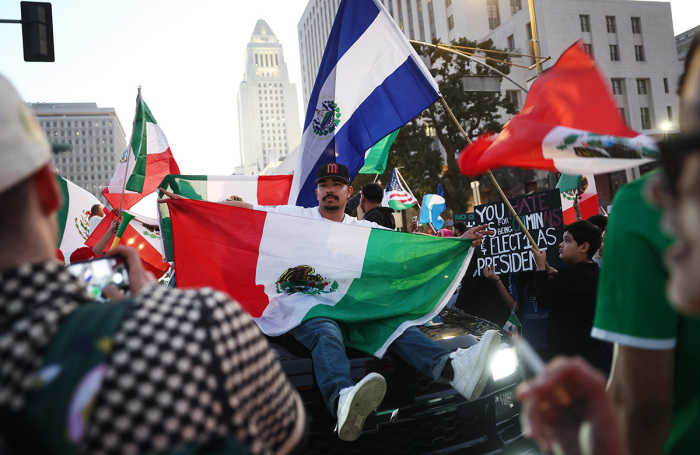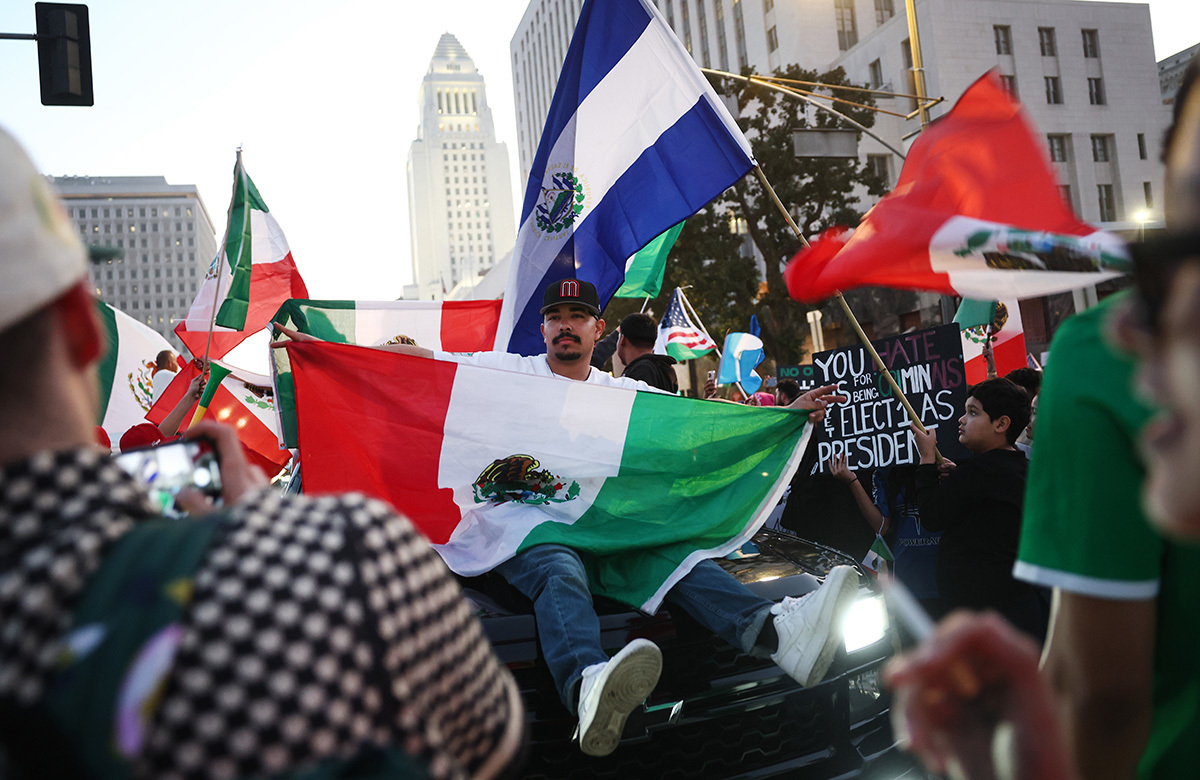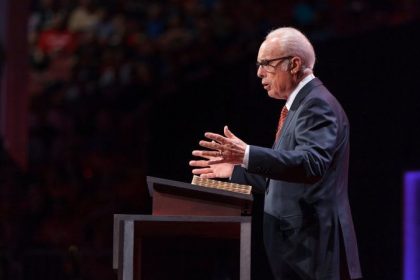
A noted Hispanic Evangelical pastor is attempting to assure the Latino community that they have nothing to fear from the Trump administration’s new immigration policies as church leaders debate the impact of efforts to crack down on illegal immigration and asylum fraud.
Shortly after taking office on Jan. 20, the Trump administration implemented a rescission of the “Sensitive Locations Protections” policy that limited the ability of federal immigration law enforcement officials to take action to deport illegal immigrants in or near “sensitive” areas. “Criminals will no longer be able to hide in America’s schools and churches to avoid arrest,” a spokesperson for the U.S. Department of Homeland Security said in a statement about the policy change.
Pastor Samuel Rodriguez, president of the National Hispanic Christian Leadership Conference, told The Christian Post that he has “received multiple assurances and clarification regarding the motivation behind that.” He noted that it’s part of an effort to target criminal illegal immigrants and ensure that “there is no safe space for criminals to be able to hide, including churches, hospitals and schools.”
“Under no circumstance in the past 250 years of American history has there ever been a moment where federal troops have come in guns blazing into a church. And it will not happen under the Trump administration,” he vowed. “I do not foresee any circumstance where [Immigrations and Customs Enforcement] agents in cooperation with other law enforcement agencies go guns a-blazing on a Sunday morning service.”
Rodriguez reiterated that “churches are a sacred space, a holy place, a holy ground for parishioners, and there shouldn’t be any fear or angst from the immigrant community, or any community, any group of our demographical landscape, as it pertains to whether they can worship without any fear.”
Rodriguez attributed concerns about the new policy in the Latino community to “misinformation,” which he said church leaders were working to address.
He cautioned, however, that “if there are innocent people, innocent with the exception of coming in here illegally, but they have never committed a crime, had even a parking ticket, but they are in the vicinity, in the same room, the same house … with a group of people that are involved in crime, when the criminals get deported, there’s a good possibility, likewise, they will get deported.”
Describing the tactics of ICE agents, he added, “They’re not going to come into churches, but they might be outside the parking lot area. Not in the parking lot, but outside in the premises, outside the church property, looking for that criminal element to maybe come out of a church service — that gang banger or that person who has a record. That’s a possibility.”
Rodriguez added that he’s stressing to the migrant community that “if you’re not a criminal and you’re a rooted immigrant, you’ve been here for 10, 15, 25, 30 years and your kids were born and raised here, you are not the primary target of ICE […] or even other law enforcement agencies that are teaming up with ICE.”
Rodriguez also addressed the temporary halt on refugee resettlement, which some Evangelical organizations have condemned.
“The asylum of our current broken immigration system had so many loopholes, exacerbated by four years of mismanagement, that the Trump administration’s placing a temporary halt,” Rodriguez said. “This is not permanent. The administration has stated this is a temporary halt until they fix the loopholes. Because the level of vetting, the veracity of the information provided was so minimal that very few elements could be confirmed.”
“There were so many loopholes that were brought forth in the past few years that basically anyone from anywhere can claim asylum for any reason, for any reason.” Rodriguez added. “All you have to say is, ‘I’m suffering persecution in my town’ with no specificity.” As an example, he said another common generic phrase used by asylum seekers is, “someone’s following me.”
“So it’s that sort of ambiguous loophole enclosure that is prompting the Trump administration to put a halt on this until we get this right,” he concluded. Rodriguez was among several Evangelical leaders who recently convened to discuss the administration’s immigration policies and the role of the American church going forward.
Daniel Garza of the Libre Initiative, who attended the event, told CP that “President Trump is sending a clear message. He is dramatically changing the way America will defend its border and ensure that proper vetting is being done of those who seek to come to America as immigrants.”
Jennifer Korn, senior advisor of the National Faith Advisory Board, contrasted Trump’s actions with what she called “lawlessness for the past four years.” According to Korn, “President Trump is doing what the American people elected him to do, including Latinos and people of faith. He is for keeping us safe, securing the border, and has talked about a big, beautiful door to allow for legal immigration. We just need to know who those people are.”
“People also need to know that ICE is not targeting ‘sensitive locations’ like schools, courts or faith-based institutions,” she stressed. “What has changed is that ICE officials are no longer prohibited from these locations if the situation is deemed appropriate and approved by a second-line supervisor.”
Bishop Gary Lewis, general overseer for the Church of God, maintained that “the primary thing that has to be addressed is fear.”
Lewis said he supports pursuing those who are in the country illegally who’ve committed violent crimes, while stressing that, for others who are law-abiding and contributing in positive ways to society, “compassion” should be shown.
“These rooted families are crucial to our communities and vital parts of our church. Our goal has to be to reassure our constituents that they’re not going to raid your congregation on a Sunday morning. That is not the direction this is going to go.”
Not all in the faith community are praising Trump’s handling of the illegal immigration issue thus far.
In a statement published last Tuesday, Bruno Molina, the executive director of the National Hispanic Baptist Network, insisted that, “As a network of Hispanic ministry leaders, we recognize the need for the safety and security of our communities.”
“At the same time,” he added, “we expect the government to respect a church’s religious liberty to minister to their community and maintain the sanctity of their worship spaces.”
“Our churches are welcoming spaces where all are encouraged to experience God’s grace and repent of their sins,” Molina added. “It grieves us deeply that our churches are no longer protected and that anyone would be denied their opportunity to receive spiritual guidance in our churches for fear of being arrested.”
Molina urged DHS to reinstate the “Sensitive Locations Protections” for churches, seeing such a move as necessary to “fulfill our God-given mission to minister to the least of these and the stranger among us.”
Ryan Foley is a reporter for The Christian Post. He can be reached at: ryan.foley@christianpost.com








